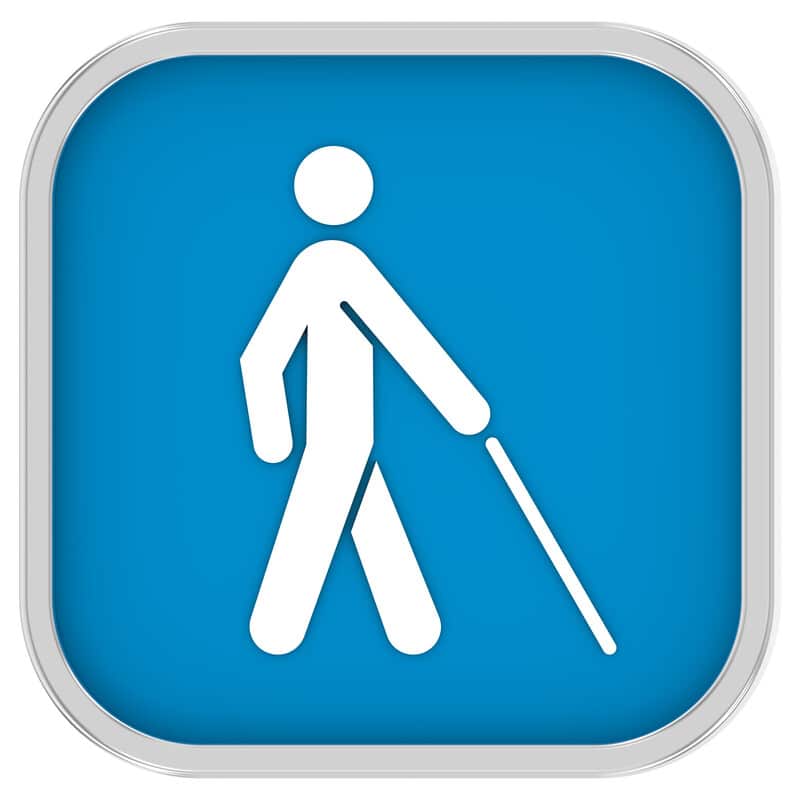
blind access logo
Good article on Title III and how attended kiosks and unattended kiosks can be affected differently. The article starts however with referring to “spate of suits” but doesn’t identify those suits. At one point vending machines dispensing drinks is referenced. Those are meant for unattended use however customers can always request assistance. Does that fulfill DOJ requirements?
Sometimes having an employee assist the customer can serve as opportunity for the employee to take advantage of the disabled (typically blind) customer.
Reasonable accommodation effort would seem to be called for in these situations. Having a POS terminal that allows for a headphone would make it possible for a blind person to materially verify the desired assistance was the actual assistance rendered.
====================================================
A recent spate of suits against several major retailers has raised questions about whether self-service checkouts and other kiosks must comply with the requirements of Title III of the Americans with Disabilities Act (ADA). Generally, Title III requires that places of public accommodation be equally accessible to all individuals, regardless of physical limitations. In these suits Plaintiffs, who are blind, allege that the retailers’ self-service checkouts or kiosks are inaccessible to blind and visually impaired individuals and, therefore, violate the ADA. Businesses, in turn, have countered that the provision of staffed registers and kiosks through which blind customers can complete purchases with the aid of store personnel satisfies their obligations under the ADA. As an ever-increasing number of businesses turn to self-service kiosks for all manner of customer interactions, the degree to which these kiosks must be accessible to disabled users presents an important issue.
________
1 28 C.F.R. § 36.303(c)(1).
2 28 C.F.R. § 36.303(b)(2).
3 See sections 707 and 811 of the 2010 ADA Standards for Accessible Design set forth at 28 C.F.R. Part 36, Subpart D (2011) and 36 C.F.R. Part 1191, Appendices B and D (2009).
4 See West v. Moe’s Franchisor, LLC, No. 15-CV-2846, 2015 WL 8484567, at *3 (S.D.N.Y. Dec. 9, 2015); West et al v. Five Guys Enterprises., LLC, No. 1:15-CV-02845, 2016 WL 482981 (S.D.N.Y. Feb. 5, 2016).
5 See id.; West, 2015 WL 8484567, at *3.
Read full article — Reference Article
